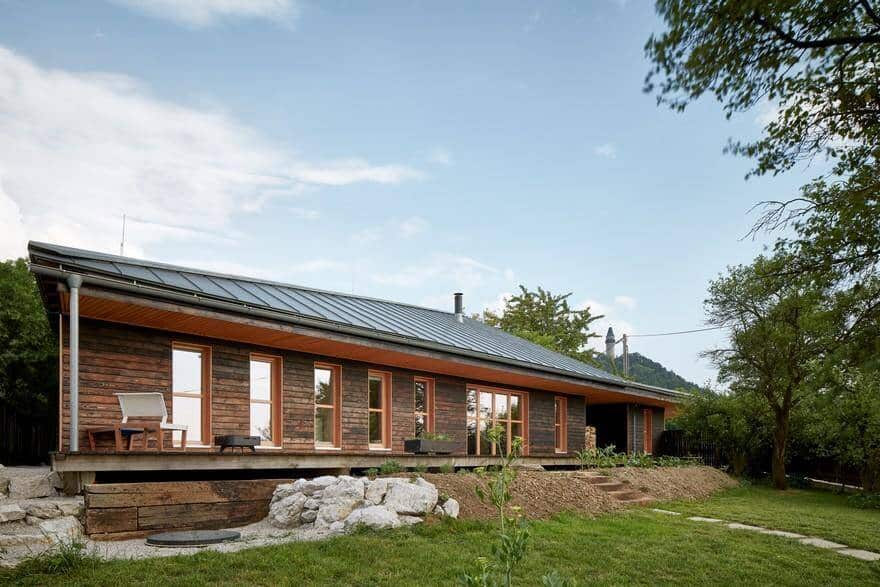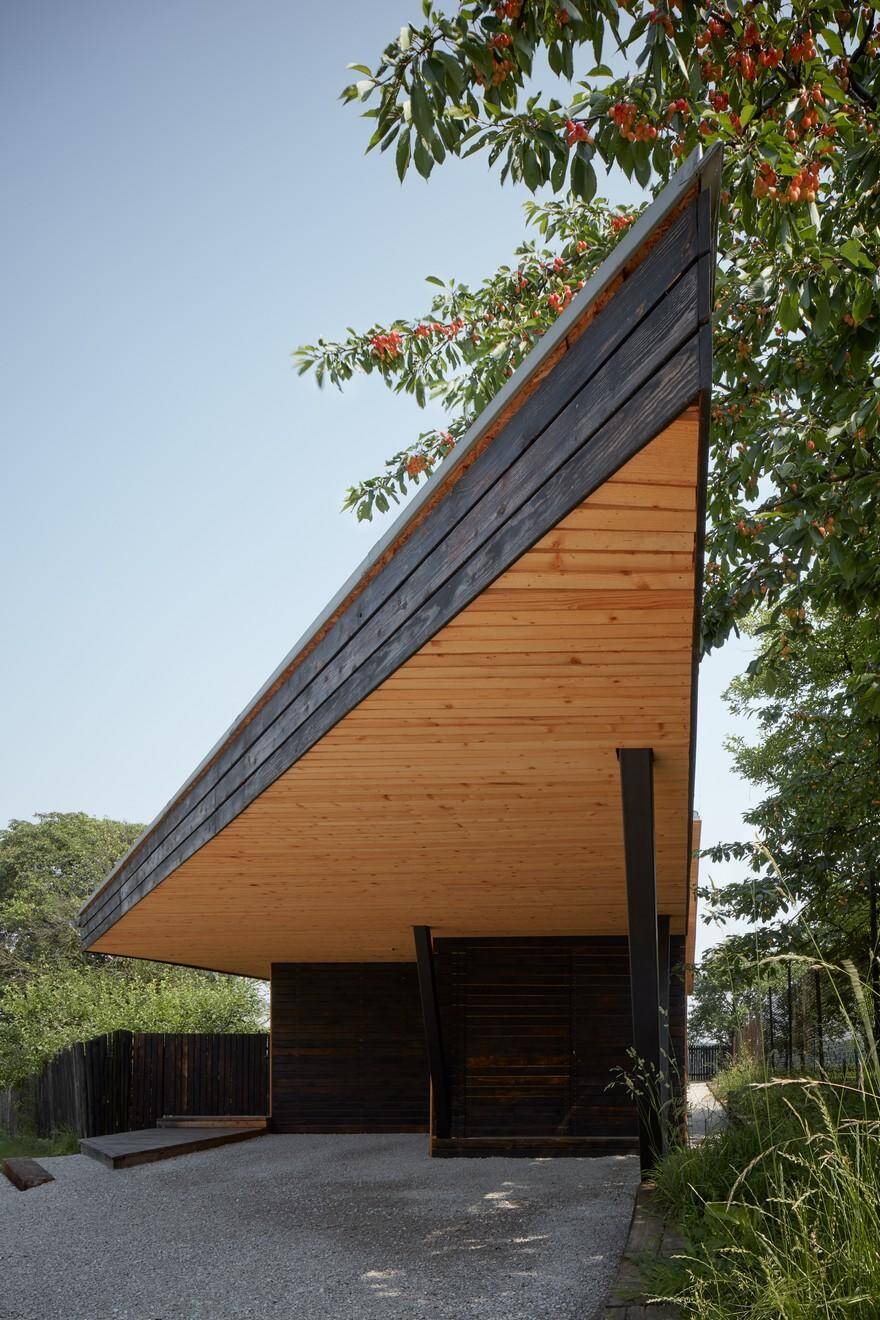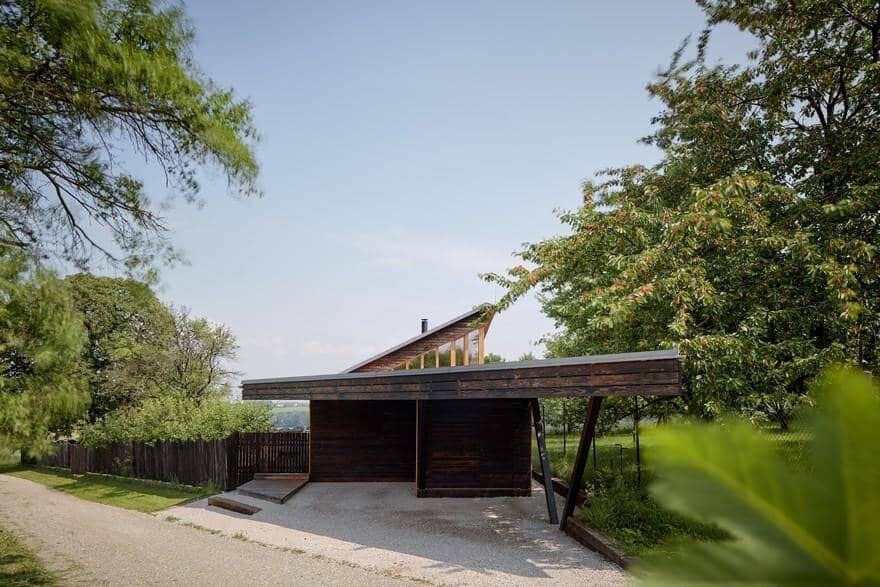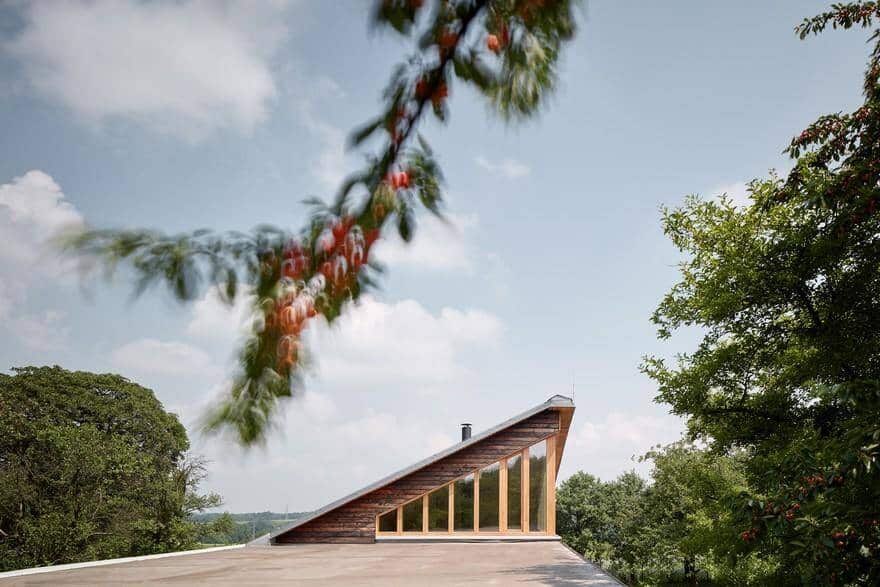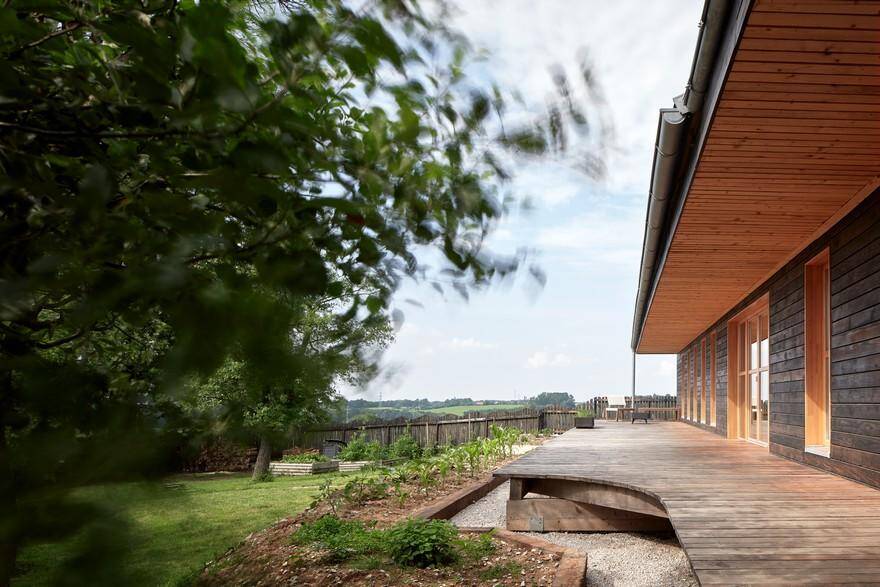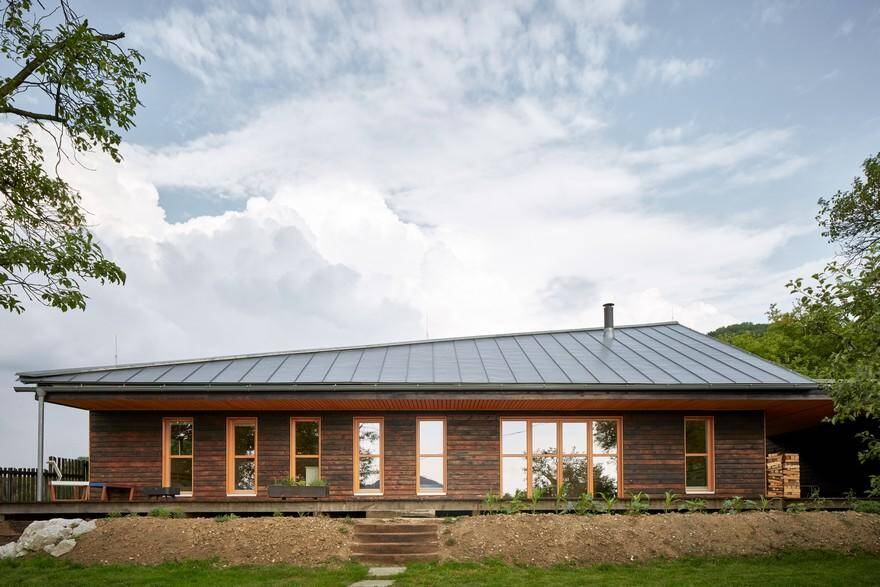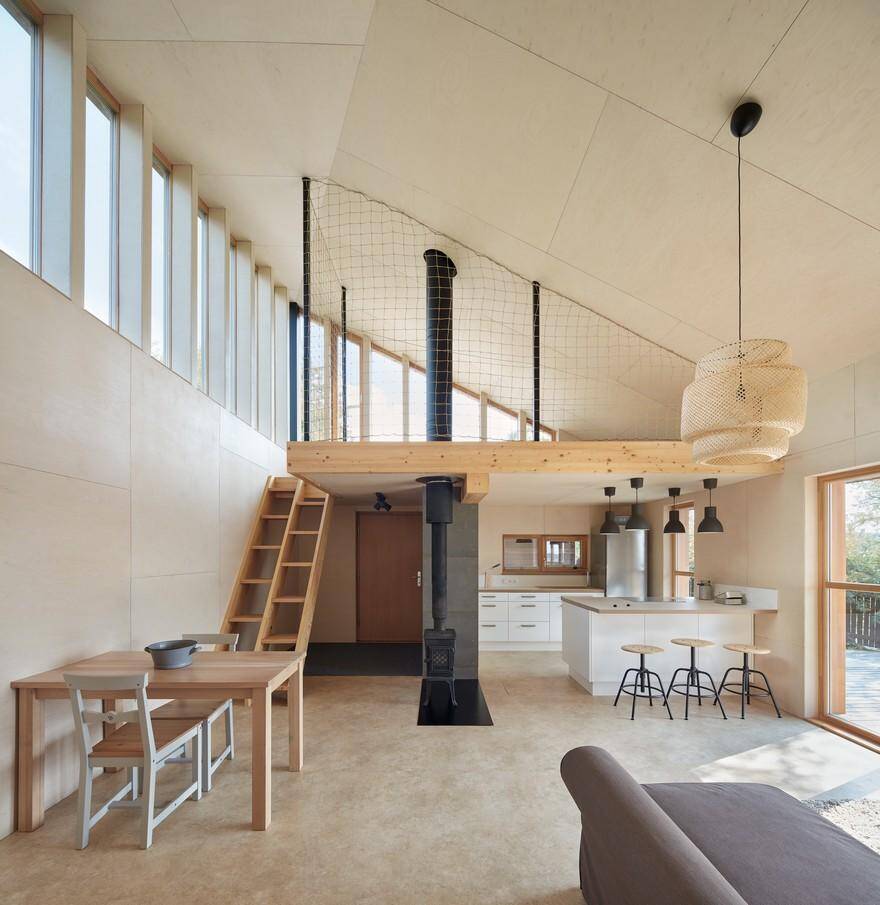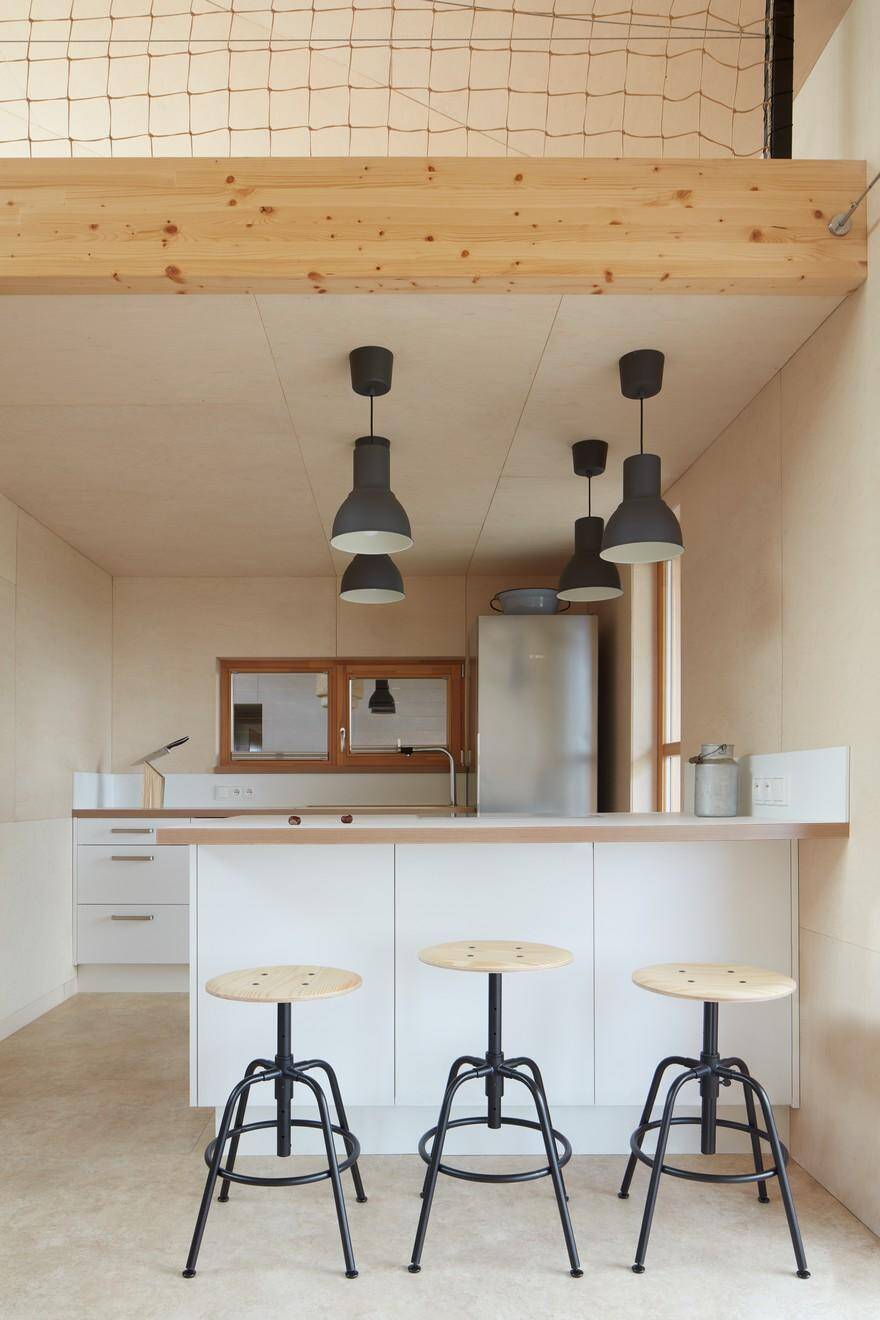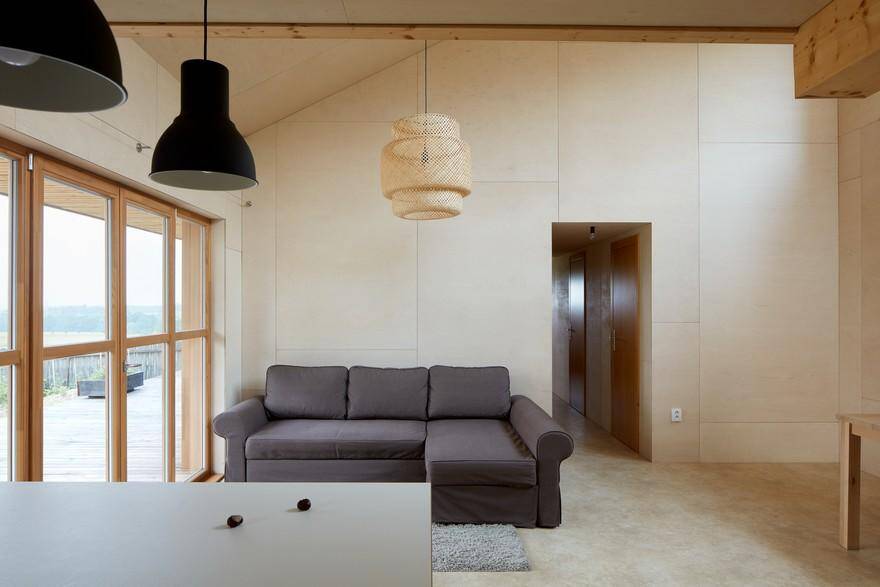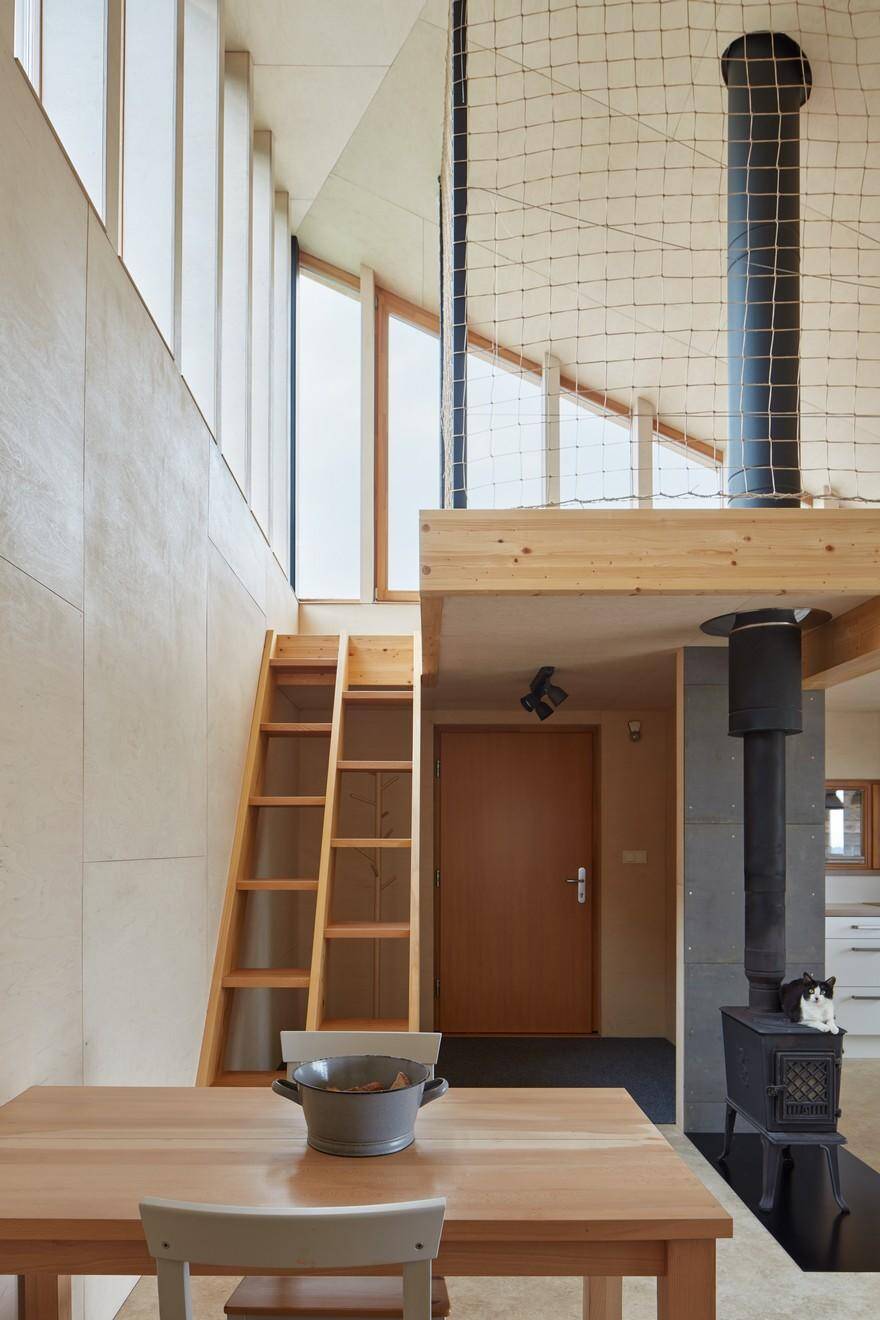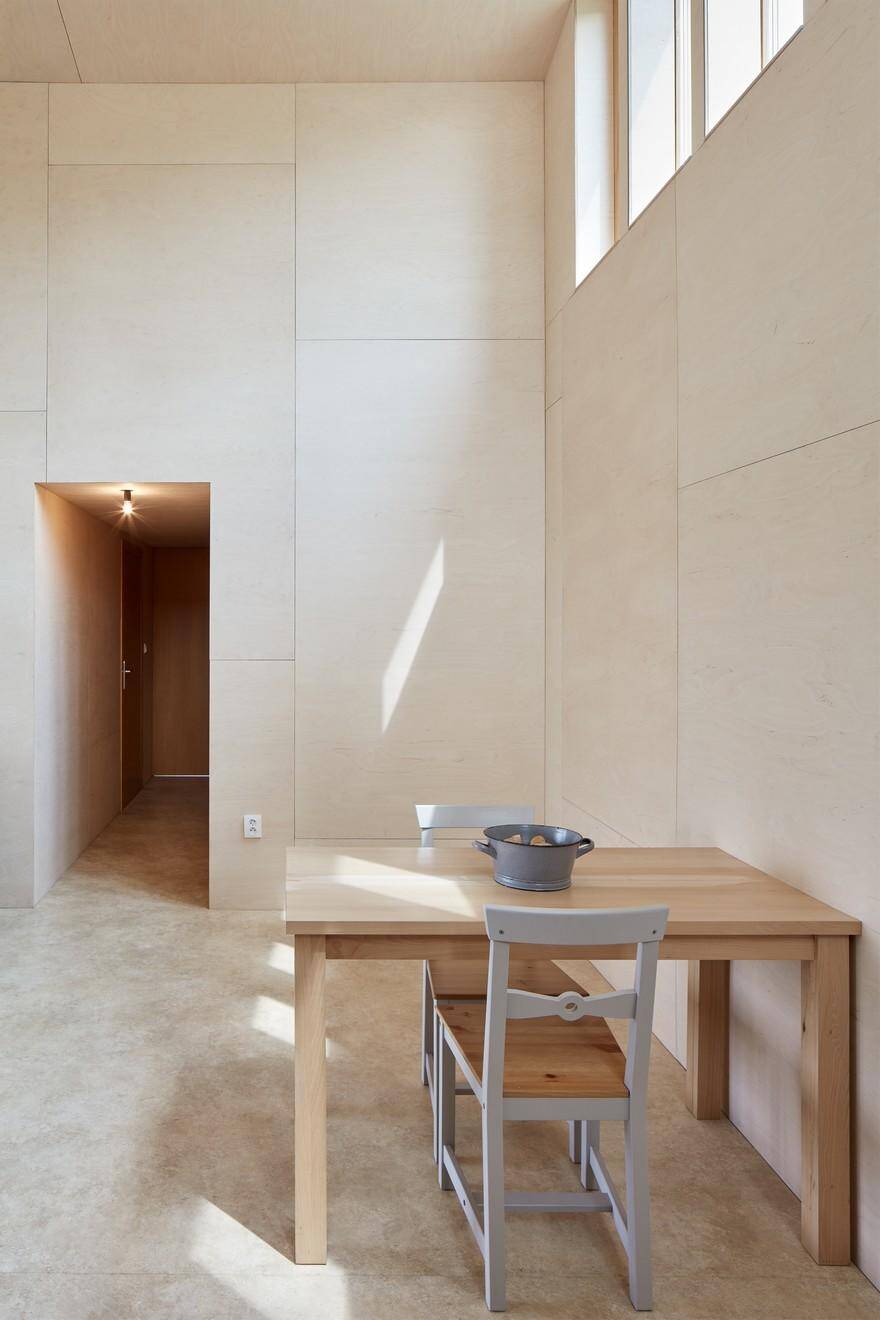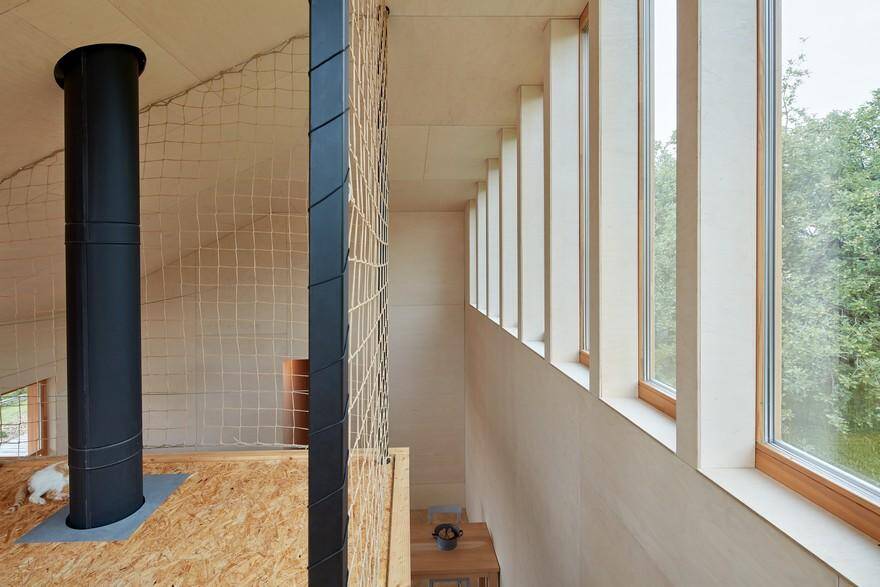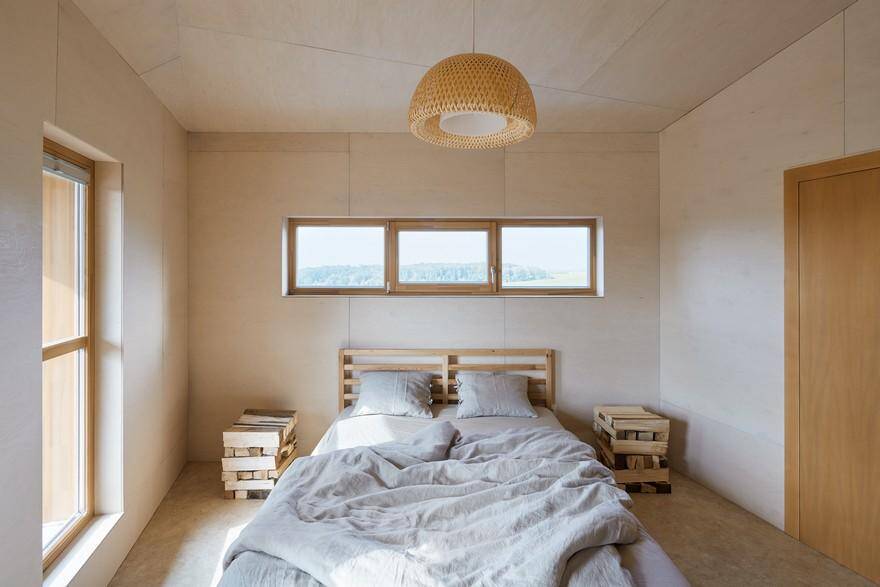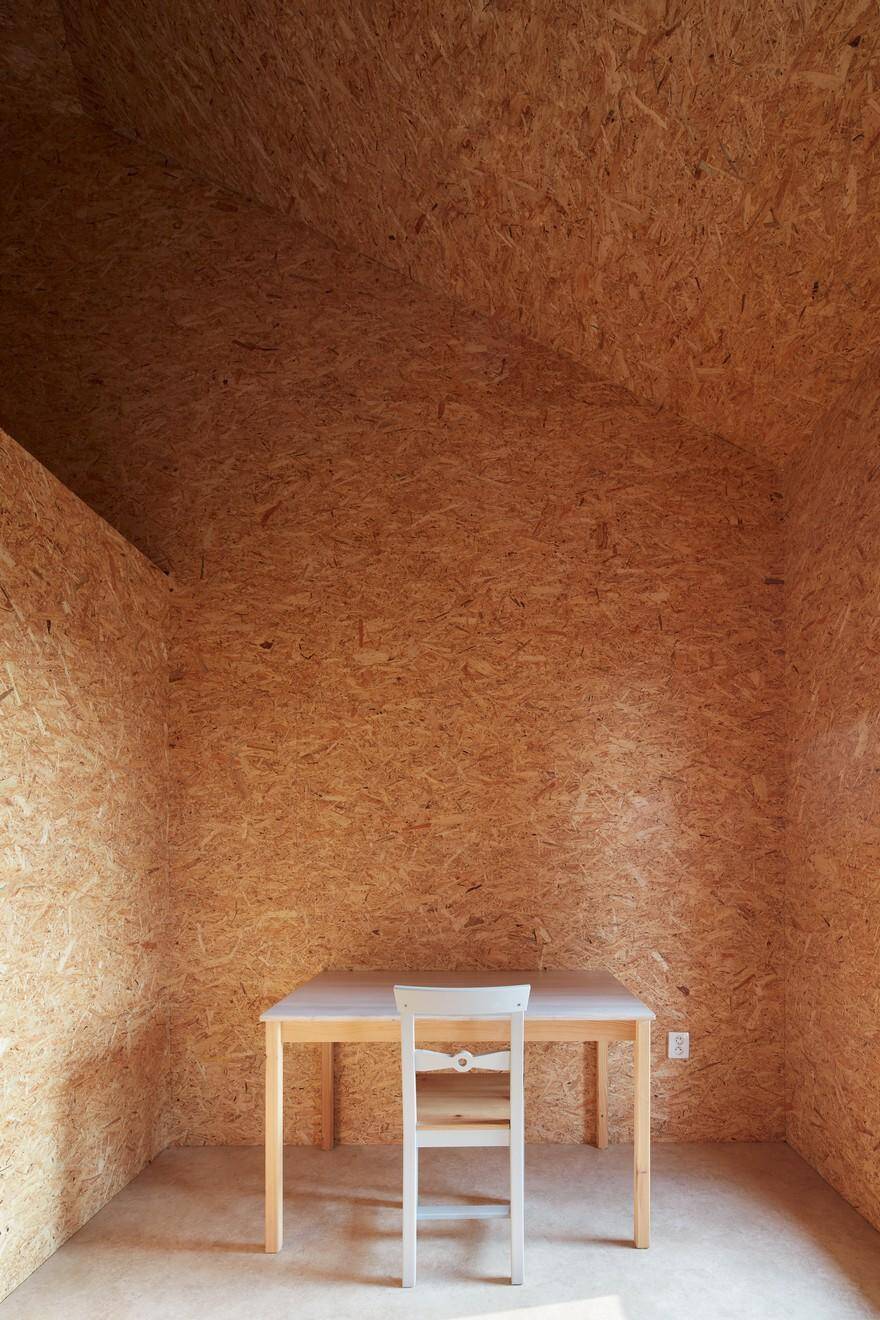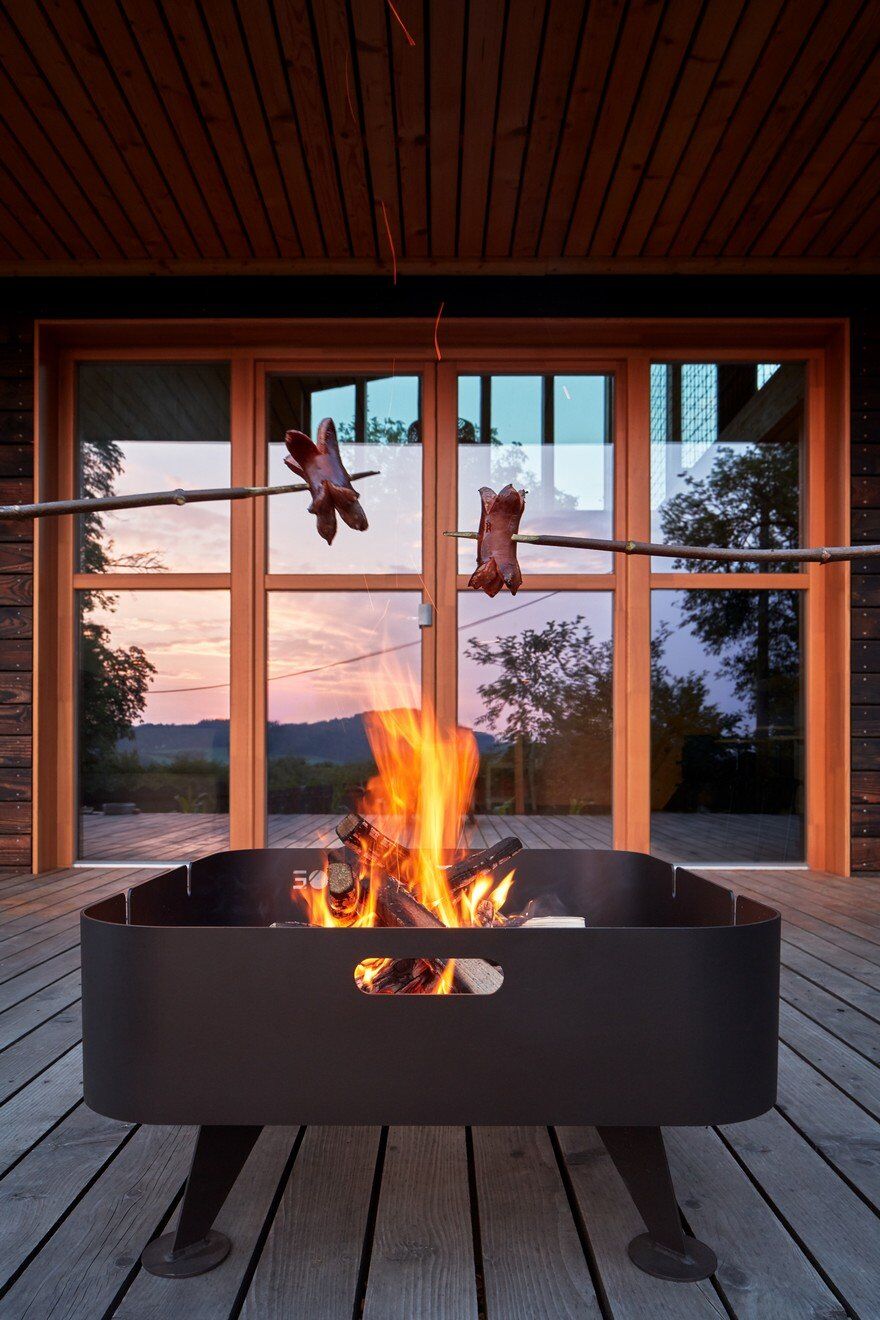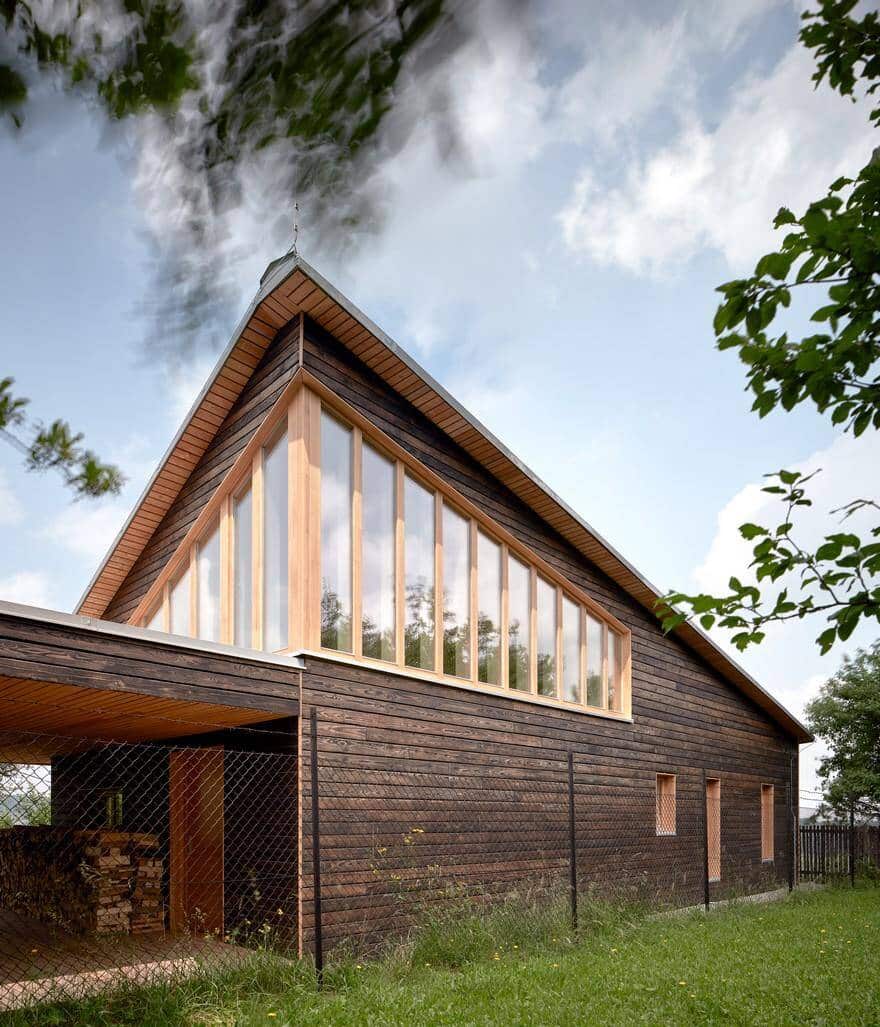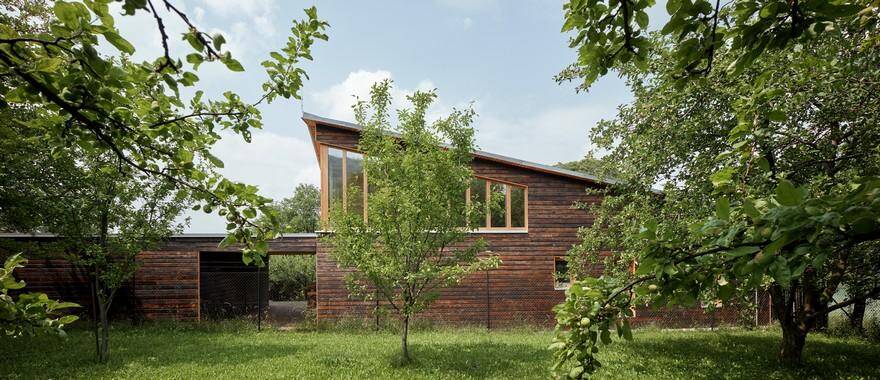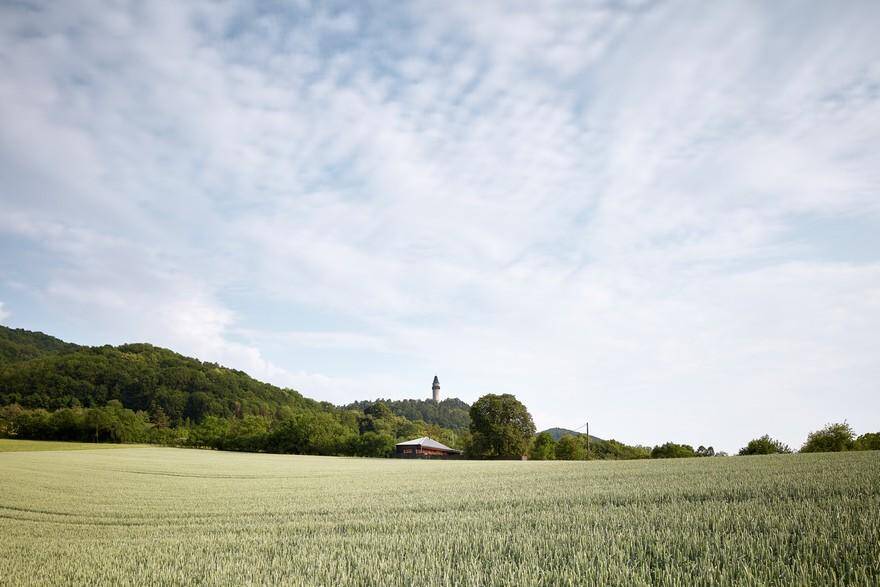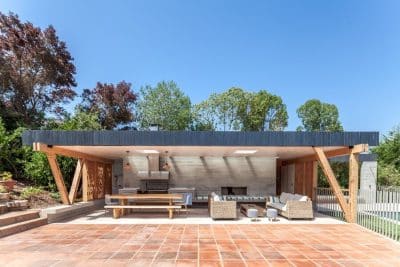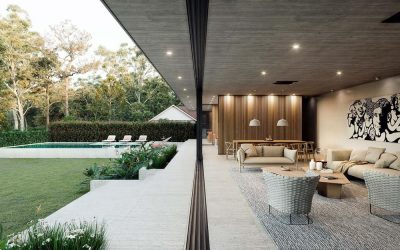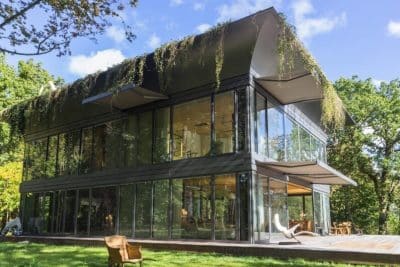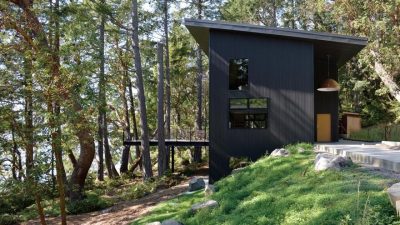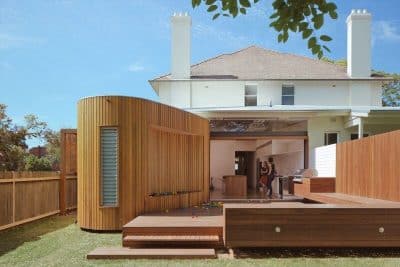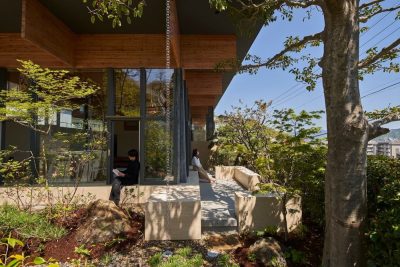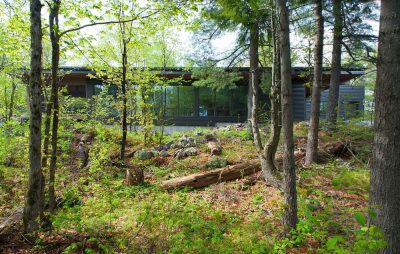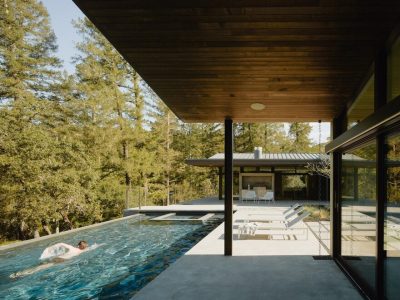Project: Chestnut House
Architects: ValArch Atelier
Architect in Charge: Ing. arch. Tomáš Jalůvka, Ing. arch. Lenka Jalůvková
Co-author: Bc. Tomáš Kašík
Location: Czech Republic
Area: 78m2, 148m2
Year: 2017
Photos: Jakub Skokan, Martin Tůma / BoysPlayNice
The first house designed and built by our architect studio is located on a small piece of land between Kopřivnice and Štramberk. It was built in a former recreation area where a large, old Chestnut tree was growing in an overrun field. This beautiful tree was a focal point for this property and the house became known as Chestnut House. The small area, orientation of the land and location of the chestnut tree clearly determined the overall atmosphere.
The dark brown house surrounded by the lush green landscape mirrors a chestnut breaking out of its thorny green shell. It is built of raw, untreated wood with burnt lining to compliment the solid chestnut tree.
The freestanding house is built in 2 sections, a larger living area and a smaller technical area. Both sections share one roof. The roof also covers half the terrace and entry with carport.
The vestibule connecting the 2 sections is multifunctional, primarily protecting the entry to both the living and technical area but also functions as a wood storage and covered seating area where one can enjoy a cup of coffee.
Above the foyer and kitchen in the larger living area is a sleeping loft for guests overlooking the living room and eating area. This entire space is open all the way to the ceiling. The east side of the house extends taller than the west and is covered with windows, mainly for the morning sun but also for a view of the famous Štramberk tower. A small walkway connects this main living space to the bedrooms and bathroom/toilet. At the end of the walk way is the main bedroom with built closet. On one side of the hallway is the bathroom and separate toilet. On the opposite side is the kid’s bedroom. The kid’s bedroom is divided to 2 spaces, the sleeping area is on an upper floor and living area is below.
Chestnut house was build using wood framing with a steel skeleton. It is sitting on iron and concrete supports and has is an accessible crawl space. All materials were sourced locally when possible with an emphasis on natural materials.
The entire Chestnut house was built to be compact and functional. A legacy to the original Wallachian architecture built from local sources and natural materials with maximum self-sufficiency. Wallachian architecture in the 21st century.

